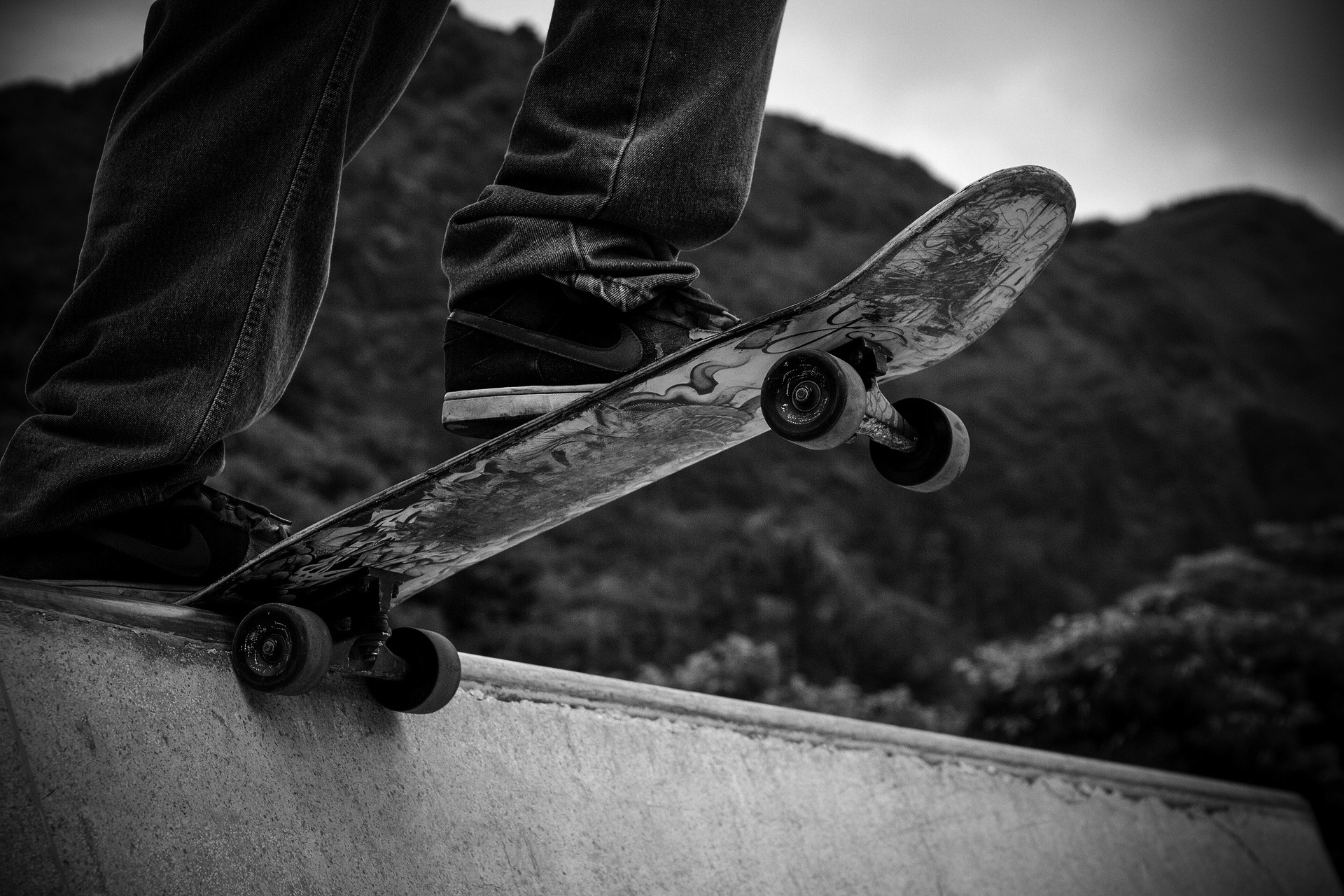Originally published November 2021.
The UK’s success at the Tokyo Olympics has been a ray of sunshine in an otherwise dismal dank summer. The feel-good effect could be long term – doing well in the Olympics does more for a nation’s mental health and positivity than any amount of politicking or dull economics numbers. It’s time for the UK to learn from success and do even more to broaden access and sports participation.
We are rightly proud of our sportspeople. Our Olympians have triumphed in the face of adversity. They fought through the training, competition and the expectations put upon them. They are worthy of our utmost admiration. We love and praise them for it. But, let’s be brutally honest: the Olympics are also about national pride – how well your country is performing relative to everyone else.
Nothing should detract from the dedication and success of individual athletes, but the UK’s success is based on a formula: fund the likely winners, pile them with lottery money, resources and coaches. It’s a form of sporting triage – focusing the relatively scarce cash on a small number of sports and expect them to deliver. It works in terms of the number of medals won – but it’s not the only approach that would bring benefits.
Politicians recognise the feel-good factor the Olympics generate, but the reality is that sport comes well down their spending priorities. This year the UK was fourth on the medal table, with 65 medals including 22 golds. Without lottery funding, UK sports would languish – as we did in the 1996 Atlanta games where the UK won 15 medals (a solitary gold) and came 36th, behind Ireland, on the medal table.
Politicians believe the lottery has solved the funding problem – and that’s perhaps a mistake. Perhaps it’s time to stop thinking of Olympic success in terms of simple lottery payback, but in terms of the UK’s ‘soft power’. Britain’s place in the world is not defined by our aircraft carrier cruising the South China seas, but by the way the UK bats well above its weight in terms of our influence on global culture, popular music, the arts and our deserved reputation for inventiveness and innovation.
We could elevate sports to a higher level with significant external soft-power payback. It all depends on how imaginative we are prepared to become.
“Most of the new sports are far more accessible than older established ones”
Tokyo proved to be the disruptive games – the swathe of new sports presented at the games hint at even more exciting opportunities in the future. I wonder if the founders of the modern games ever imagined how loudly we’d be cheering on 13-year-old skateboarders, mixed teams or rock climbers? The women’s Rugby Sevens was spectacular. These new sports confirm the need for Olympic change. It’s become more commercialised, but also increasingly democratised. Most of the new sports are far more accessible than older established ones.
There is much wrong with the current Olympic format. It’s tailored to achieving the maximum television revenues – which is why there are such a surfeit of sports aimed at pleasing the Americans. Why should they include professional sports like tennis, football, baseball or golf? I can’t imagine any world where golf improves anything – it’s a good walk spoilt.
The Americans can brag they won the Olympics with most medals and most golds (one more than China) – but does that actually matter?
Forget who dominated the medal tables. If you want to weigh Olympic success, then historically the nation to beat is Jamaica – consistently the Caribbean island wins more gold per head than anyone else. The Kiwis, the Dutch and the Danes also do pretty well, unlike India which, despite its massive population, possesses an anthem you are unlikely to become familiar with at prize-giving time.
There are well-founded arguments that the wide range of human genetics determine success – hence the dominance of the Kenyans and Ethiopians at long distance, Africans at the sprint, Europeans in power to weight events and so on. Therefore, nations with the greatest genetic diversity – like the UK and USA – should be favoured to do well across the maximum number of sports.
The Australians joke the Brits only win in sports where its mostly sitting down that counts – like rowing, sailing and equestrian. These are not sports that occur naturally in the inner cities. They are, frankly, elitist. I am a passionate sailor, but I’m very aware access is difficult for the vast majority of the population. Team GBR Sailing nailed the Olympics in 2021 – three golds to head the sailing medal table – again. Such is our success, the French have manoevered to have most of the sailing events we dominate removed from the schedule in 2024.
The UK has also done particularly well in cycling, not only in the Olympics but where it really counts: beating the French in the Tour de France. While cycling is having a banner year, it’s been a shocker for the UK rowing team – riven by allegations from some elite athletes of a bullying coaching culture, the team failed to hit its targets, despite millions in funding.
In contrast, among the most popular athletes in the UK today are probably the two BMX gold medal winners: Bethany Shriever and Charlotte Worthington, silver medalist Kye Whyte and the mountain bike champion Tom Pidcock.
Bethany’s story shows why UK sport needs to be constantly reinventing itself. Unlike the perception of pampered rowing toffs based in their multimillion facility across the Thames from Eton (the UK’s poshest school), their diet experts, massage parlours and multiple coaches, Bethany comes across as utterly genuine. Her BMX racing was initially written off by the funders, and she had to take a job and crowdfund her path to Tokyo.
Charlotte’s dedication to her sport has seen her break her leg twice in training and also suffer funding crisis. No mental health wobbles were going to stop her after she fell pulling a spectacular stunt on her first run – she went straight back out and nailed it on the second. Kye’s success is largely down to the remarkable inner-city Peckam BMX club – the polar opposite in terms of diversity and access to opportunity that the conventional vision of elite sport generates.
Fortunately, British Cycling’s performance team realised these relatively new disciplines were fresh avenues towards success and also that they are much more accessible to more people than velodromes, expensive Lycra suits and multimillion pound bikes. Rather than locking the new bike sports out, the funding was belatedly found to support them. Cycling now scores top in terms of hitting diversity and medal targets.
“Why should the UK not win a surfing medal one day?”
But what does it mean for the nation? How do we continue to generate success and feel-good? There are so many new sports, like skateboarding, sports climbing and surfing getting the attention of the TV audiences. Paris in 2024 will see breakdancing added to the list. Even surfing is now accessible to the inner cities – surf machines and parks are springing up around the country. Why should the UK not win a surfing medal one day? I’d urge the politicians to encourage it as a goal.
Personally, my favourite athlete of all time remains Alf Tupper – the fictional “tough of the track” who appeared in the Victor comic back in the 1960s and 70s. The friendly tousle-haired working class hero was presented as the antithesis to the posh clubs of his time. Training on a diet of fish ’n’ chips, hitchhiking his way to races, regularly punching out toffs who tried to have him thrown out for his lack of running-club tie, Alf would always do the right thing to ensure gold for Britain, including sacrificing his own medal chances.
Sport has a remarkable ability to change lives for the better. Whether it’s making ourselves fitter, giving us a passion or turning us into champions – or simply generating feel-good. We learn life lessons from defeat and triumph equally. Yet, for all the noise around the Olympics and our suddenly professed interest in the intricacies of horse dancing for the three days it’s on TV every four years, the UK by and large remains a nation of couch potatoes.
Participation is not just a matter of access, diversity or opportunity – it’s equally about personal choice. It’s very difficult for people to motivate themselves to go down the gym, go for a run in the rain or, in my case, get out of my warm bed to rig my dinghy and brace myself for the inevitable capsize. Every time I do I feel better for it, energised, invigorated and promising to do more.. Until I roll over and go back to sleep the next day. Across the nation, millions of people just don’t participate because they don’t perceive access to sporting opportunity.
For all the money Government has squandered in recent years on tanks that don’t tank or test and trace apps that don’t, or government programmes that gorge on our taxes, what would be so wrong with splurging a little more to give every kid even greater access to new sports? Let’s build more skate and BMX parks, support all-year ski and snowboard slopes, put climbing walls in every school and make sure every kid gets to compete to win in swimming galas in nice new pools.
It will be expensive, but it’s worth it in terms of the soft power sport generates and encouraging kids to participate by making access easy. The UK did well in Tokyo. Let’s do even better in Paris. Because that will really upset our chums across the Channel – which is ultimately the reason the UK is the UK.








